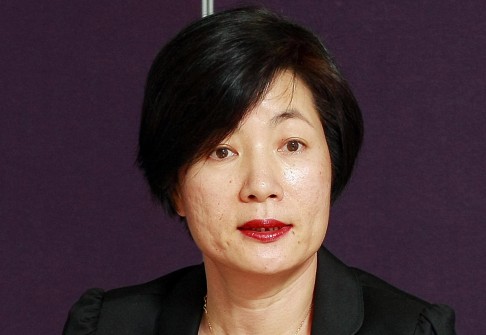Money laundering investigations in Hong Kong up sharply following 2012 law
But reports of 'brain drain' plague agencies investigating financial crimes under new law
PUBLISHED : Monday, 14 April, 2014, 6:21am
UPDATED : Monday, 14 April, 2014, 8:36am
Toh Han Shih and Samuel Chan

Superintendent Gloria has denied a loss of talent.Police in Hong Kong received 33,000 reports of suspicious financial transactions last year - a 12-year high and a 40 per cent rise from 2012 - after Hong Kong tightened its money-laundering laws.
Police have initiated more investigations since the new legislation went into effect in the middle of 2012, and spend an average of 18 months on each case.
Of the thousands of new reports, the Financial Investigations Division of the Narcotics Bureau initiated 349 investigations in 2013, up 41.9 per cent from the 246 in 2012.
However, the increased enforcement comes alongside concerns that the city's efforts to tackle money laundering are being undermined by a "brain drain" as experienced investigators are lured to more profitable careers in the private sector.
Gloria Yu Yin-ching, superintendent of the Narcotics Bureau's financial investigation unit, denied her team lacked new talent. She said the anti-money laundering team had recruited 40 new members since 2008.
The total value of assets frozen by Hong Kong police in money-laundering investigations rose 13.7 per cent to HK$873 million in 2013, from HK$768 million in 2012, according to Hong Kong police data. In 2011, police froze HK$731 million worth of assets.
The cases included requests from overseas law enforcement agencies as well as cases opened by local police. Law enforcement agencies from the mainland, Australia and the US had been "very co-operative" with Hong Kong police in money laundering investigations, Chief Inspector Paul Chung Yat-cheung said.
Yu said: "The increase in reports can be attributed to a number of factors. Enhanced awareness by the public, the enactment of [anti-money laundering legislation] and requests from overseas law enforcement agencies are some."
Hong Kong implemented the Anti-Money Laundering and Counter-Terrorist Financing (Financial Institutions) Ordinance, better known as AMLO, on April 1, 2012. Following that, a 29 per cent rise in the number of suspicious transactions was reported to Hong Kong authorities in the first half of that year, according to a report by Ropes & Gray, an international law firm.
The law "was the first piece of Hong Kong legislation to address money laundering as its primary focus, and importantly has strong provisions encouraging increased reporting of suspicious activity," said Kim Nemirow, a lawyer at Ropes & Gray.
AMLO is the first Hong Kong legislation to impose customer due diligence requirements on banks and financial institutions.
Yu declined to say if a current crackdown on graft on the mainland was creating more money laundering cases in Hong Kong.
The dirty money "could be from anywhere, Eastern Europe for example. If our mainland counterparts ask us to render assistance, we will do so", Yu said.
"The money laundering cases I see often involve fraud from foreign investment in China," said Julian Russell, director of Pacific Risk, a Hong Kong risk-management consultancy.
"Other projects I have worked on involve Hong Kong as an intermediary where stolen money from overseas enters but then leaves to other jurisdictions such as Singapore or Switzerland to obfuscate the trail."
Many professional money launderers based in Shenzhen and Hong Kong offer their services to anyone, Russell said. Most criminals launder their own money through offshore companies registered in places like the British Virgin Islands and Cayman Islands, he added.
In recent years more laundering cases had been heard in the High Court instead of the district courts, which might indicate a higher amount of laundered assets were involved, Yu said.
